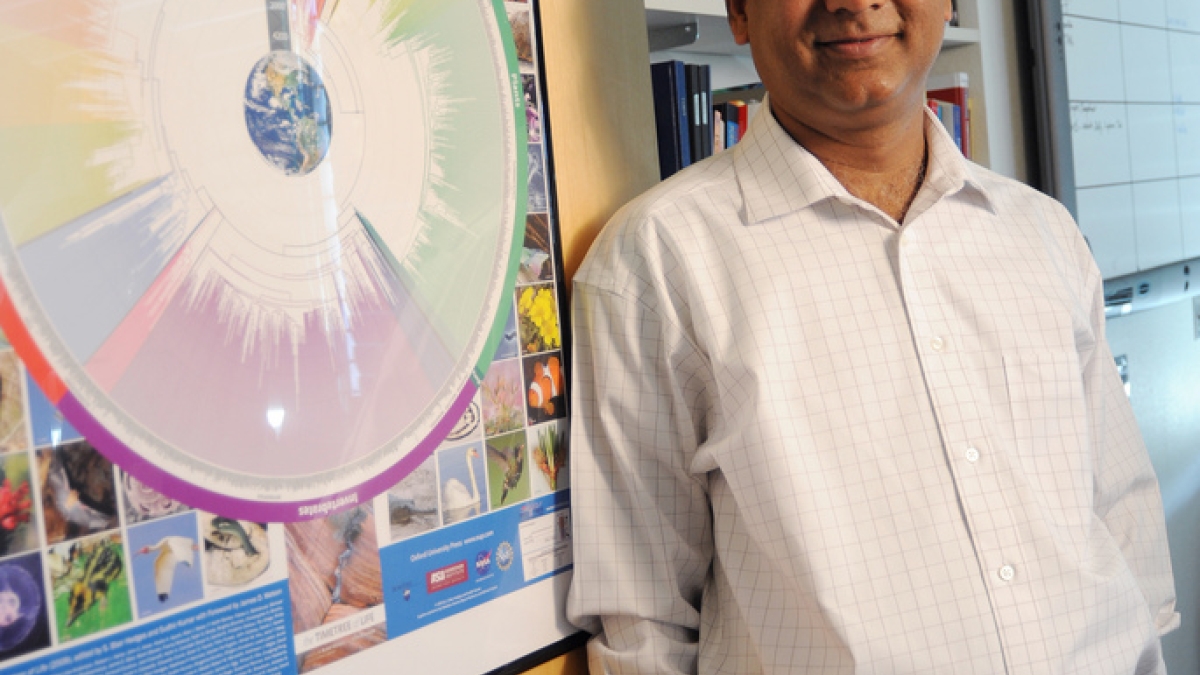Phylomedicine: Darwin for disease

If the much-touted era of personalized medicine is to become a reality, a tighter fit between the universe of gene mutations found in human populations and the complex diseases they correlate with will have to be established.
Researchers pursuing this quest have found an invaluable, if unlikely, ally: Charles Darwin. Although evolutionary theory forms the cornerstone of biology, it has only recently been exploited as a rich source of clinical insight into the causes and possible treatments for disease.
The advent of rapid, lower-cost genetic sequencing has opened the floodgates for comparative genomic research, adding human full-genome sequences to a burgeoning library while filling out the branches of the Tree of Life with the genomes of thousands of other living forms, from sea stars to simians.
On March 23-24 researchers from around the world descended on the Biodesign Institute at ASU to take part in a conference on the confluence between species phylogenetics and modern medicine, a hybrid field dubbed phylomedicine.
The conference was sponsored by the Institute’s Center for Evolutionary Medicine and Informatics (CEMI) and organized by its Sudhir Kumar and Ananias Escalante. Financial support for this conference was provided by the Society for Molecular Biology and Evolution (SMBE). The SMBE is an international organization which facilitates association and communication among molecular evolutionists and furthers the goals of molecular evolution, as well as its practitioners and teachers.
Kumar describes phylomedicine as an evolutionary telescope for investigating the relationship between human gene mutations and disease, and applying evolutionary knowledge to identify mutations in personal genomes that may result in severe and mild diseases or dictate individual responses to drugs and infections.
Gene sequences along the DNA thread that are conserved over lengthy stretches of evolutionary time and shared across multiple species are resistant to change compared with other, more flexible points along the vast double helix, which are evolving more rapidly and where point mutations are less likely to have dire consequences for human health.
Sudhir Kumar says: “Phylomedicine is emerging as an important discipline at the intersection of Molecular Evolution and Genomic Medicine. It focuses on the understanding of human disease and health through the application of long-term molecular evolutionary history. It was great to have pioneers in the field of genomic and evolutionary medicine at ASU to present and discuss their recent research findings.”